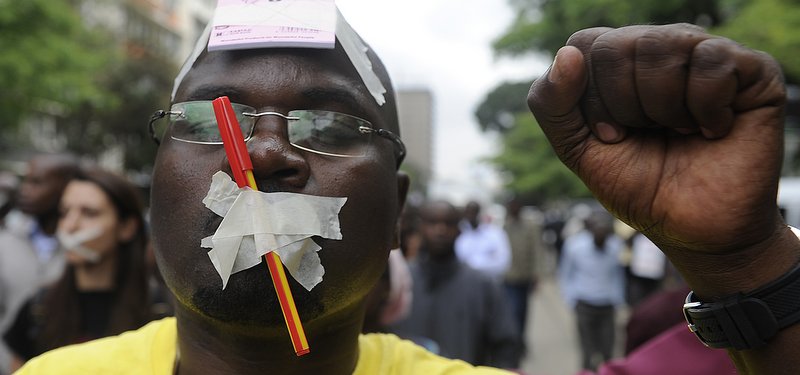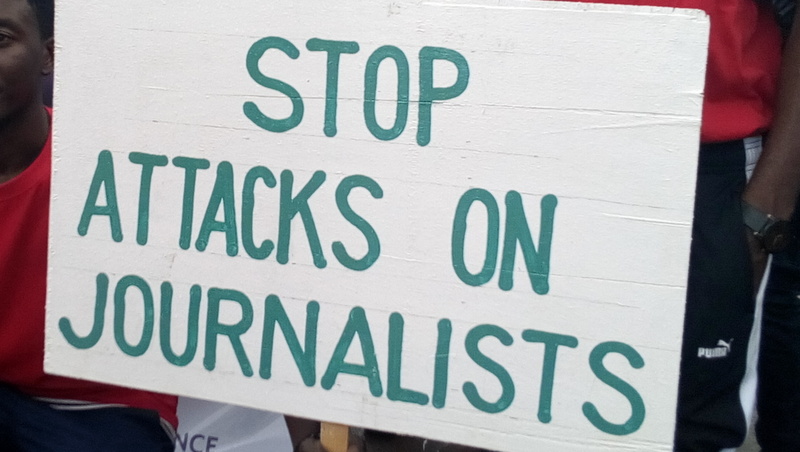Celebrating World Press Freedom Day 2018
[dropcap1]M[/dropcap1]ISA Malawi is sharing its recommendations for improving media freedom, freedom of expression and access to information to mark World Press Freedom Day 2018. You can also download a PDF copy to print and share.
[highlight1]LAWS AND REGULATIONS[/highlight1]
Amend the Cyber-Security Act
Parliament should amend the Electronic Transactions and Cyber Security Act (2016) to promote online freedom of expression. The law regulates online transactions, including online communication, and contains several retrogressive clauses that are open to abuse.
Repeal laws limiting free speech
Government should repeal Section 181 of Malawi’s Penal Code, as well as other laws curbing freedom of expression. These laws, some of which date from the colonial era, are being used by authorities to suppress dissent.
[line]
[highlight1]MEDIA INDEPENDENCE[/highlight1]
Turn MBC into a truly independent public broadcaster
The Malawi Broadcasting Corporation still shows ruling party bias despite being mandated as a public broadcaster under the revised Communications Act (2016). The government should allow MBC to operate as a truly independent media organisation. In addition, the Malawi Communication Regulatory Authority needs to make sure MBC stays within its public broadcasting mandate and follow up when this is flouted.
[line]
[highlight1]ACCESS TO INFORMATION[/highlight1]
Set a date for the implementation of the ATI Act (2016)
The government needs to gazette a date for the commencement of the Access to Information Act, which was passed by the president in February 2017. Civil society and international partners need to continue lobbying government to finally implement the act.
Give the Human Rights Commission sufficient resources to promote and monitor the ATI Act
Government should provide the Malawi Human Rights Commission with a big enough budget for the commission to effectively raise awareness about the provisions of the ATI Act and monitor its implementation.
[line]
[highlight1]ICT ACCESS[/highlight1]
[getty src=”600011887″ width=”509″ height=”339″]
Promote universal access to ICT services
The ICT sector should lobby government to develop strategies that advance universal access to ICT services as provided for in the National ICT Policy (2013). The combination of low computer literacy, expensive Internet services, poor infrastructure and erratic power supply continue to limit ICT pick up in Malawi.
[line]
[highlight1]SAFETY OF JOURNALISTS[/highlight1]
Investigate and prosecute crimes against journalists
Police should investigate cases where journalists are assaulted or attacked and bring the culprits to book. Media rights organisations and media houses should strongly condemn such attacks and call upon relevant authorities to act.
[line]
[highlight1]MEDIA REGULATION[/highlight1]
Revive the Media Council of Malawi
The Media Council of Malawi (MCM) is currently not functioning. This may give government a reason to create a new media regulatory body, which is required by law. MISA Malawi, the Association of Media Owners and other stakeholders need to unite to resuscitate MCM and find ways to sustain its operations in order for the media sector to maintain self regulation.
[line]
[highlight1]DIGITAL MIGRATION[/highlight1]
[getty src=”108196900″ width=”507″ height=”338″]
Promote awareness on digital migration
The government needs to provide the Ministry of Information and Telecommunications Technology and the Digital Broadcasting Network with resources to raise awareness on digital migration. Malawi is preparing for the next stage of digital migration but most Malawians still don’t understand the benefits – such as better quality broadcasts, more choice of channels and viewing options like subtitles – that come with switching from an analog to a digital signal.
[line]
And you can also take a look at the Way Forward 2018 recommendations for MISA Lesotho, MISA Zimbabwe and MISA Zambia.









